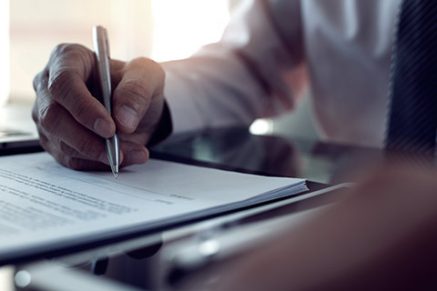
Credit card: beware of the minimum payment
Summary
- By limiting yourself to making the minimum payment on your credit card, you are deferring repayment of your purchases. You’ll end up paying a lot more for them, because of the interest.
- Your credit rating may not be affected by this practice, but your debt may explode. And too high a debt ratio will scare off future lenders.
- To protect yourself from over-indebtedness, there are a number of good habits you can adopt.
Paying the minimum – not such a good idea
Of course, it can be tempting to only pay off the minimum balance on your credit card each month.
In the short term, you have the impression you’re paying less. However, over the long term, the bill is high, because interest accrues, which may lead to a situation that is hard to control.
Interest is going up and up
By making the minimum payment on your credit card, you meet your bank’s requirements. There is no risk of getting a call from a debt collector. And it’s always better to pay back a minimum amount than to pay back nothing at all.
On the other hand, by not paying off your full balance, you incur interest. Interest that adds up month after month and adds up to all the other new purchases you’re sure to make.
If you make it a habit, your debt will increase and you will drag it out for a long time. And a high debt ratio doesn’t bode well for lenders, who might be suspicious and refuse you a loan application, such as a mortgage.
In short, even if making the minimum payment on your credit card does not directly affect your credit rating, it can have a significant impact on your ability to borrow.
Purchases that end up costing much more
The main consequence of making only the minimum payment is simple: you pay for a long time. And you’ll be paying a lot of money for it.
Let us take an example. Joanne, 34, decides to pay for her $5,000 appliances with her credit card, which has an interest rate of 19,9%.
If Joanne just pays the minimum each month (4% of the balance), it will take her 13 years to pay off her appliances! Worse yet, if we add up all the interest she will pay, Joanne will have paid $8,450 instead of $5,000. That’s almost double the amount borrowed!
To find out how much your purchases actually cost when you make the minimum payment on your credit card, use our tool to calculate the cost of your credit cards.
A new measure to prevent debt problems
By 2025, the minimum percentage to be paid on your credit card balance each month will gradually increase from 2% to 5%. This change was imposed on financial institutions to ensure that they reduce the risk of over-indebtedness among consumers and to make credit card users aware of their true ability to pay. By making more than the minimum payment on a credit card balance, you can achieve significant credit fee savings.
Four good habits to avoid indebtedness
1. Make a budget
This is the foundation for financial health. You will see where your money is going and you will be able to make adjustments, if necessary. Our tools are available to help you.
2. Plan your expenses and payments
This is the next logical step. With a good budget in hand, you’ll know what purchases you can afford and you’ll be well aware of the payments you have to make.
3. Pay more than the minimum balance on your credit card
If it’s not possible for you to pay off your balance in full, at least try to pay off more than the minimum balance. The idea is always the same: pay as little interest as possible.
4. Focus on paying your credit card debts
If you have accumulated debts, it’s often a good idea to pay off your credit cards first. Why? Because the credit card interest rate is never to your advantage.
Need a hand to get your finances in order?
If you are under pressure from creditors and your debts are taking up too much space in your daily life, talk to one of our financial recovery advisors. They are experts in assessing your situation and proposing solutions that meet your needs.
Meet with one of our counsellors for free
Don’t ignore a debt problem that’s ruining your life. Let’s work together to help you regain control of your finances.


